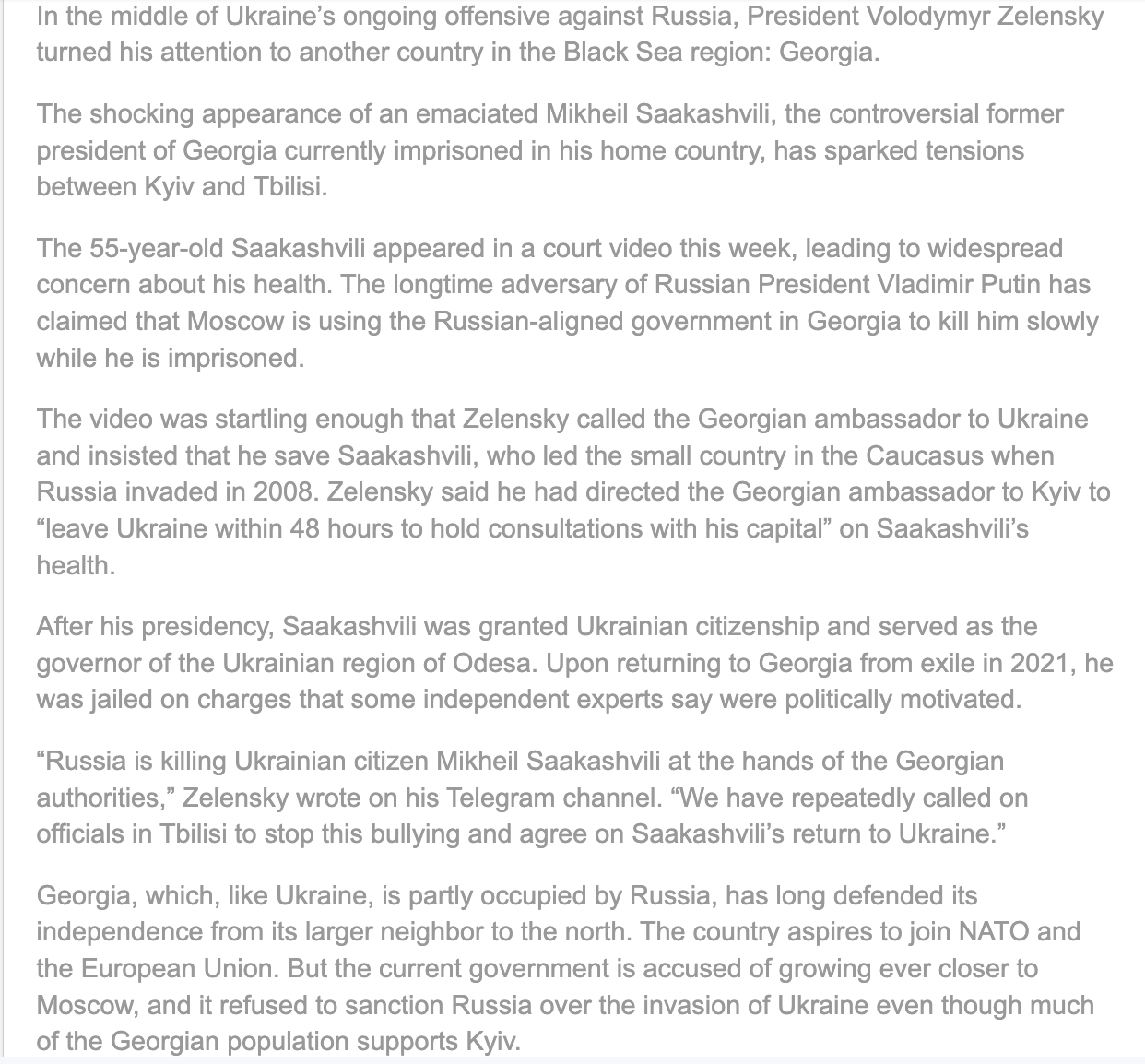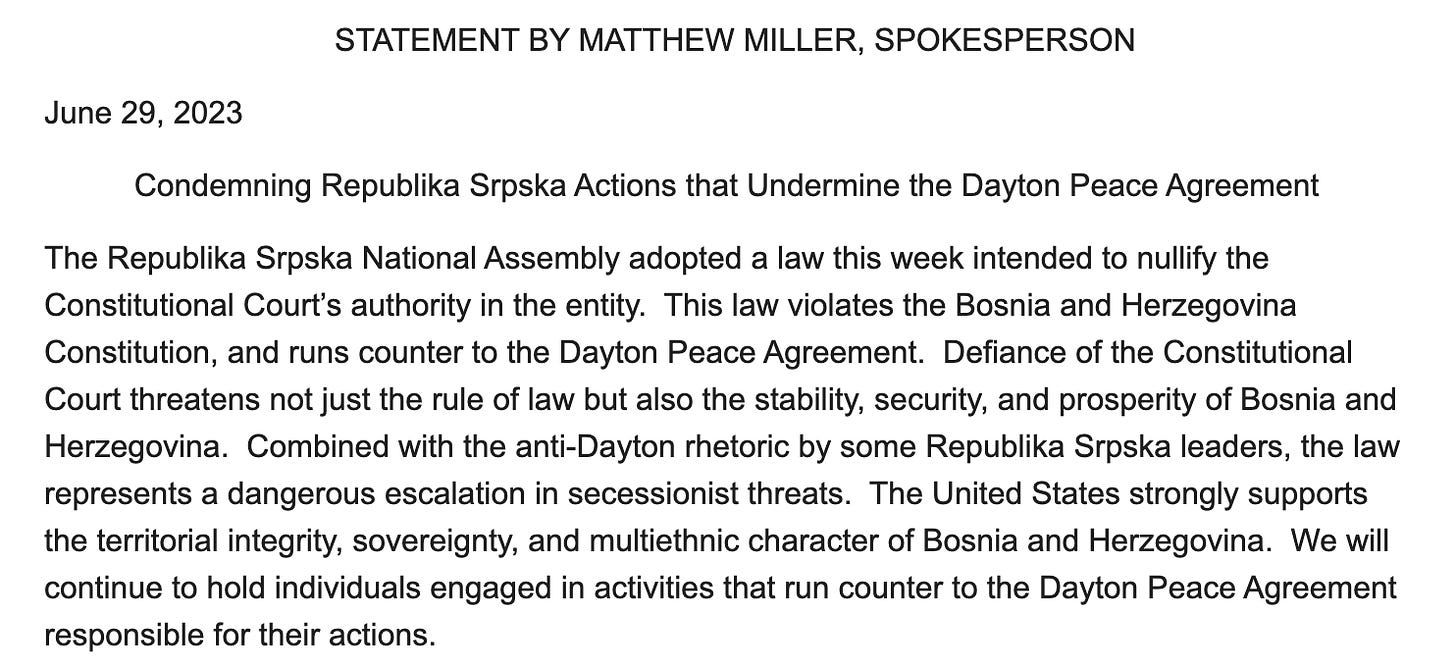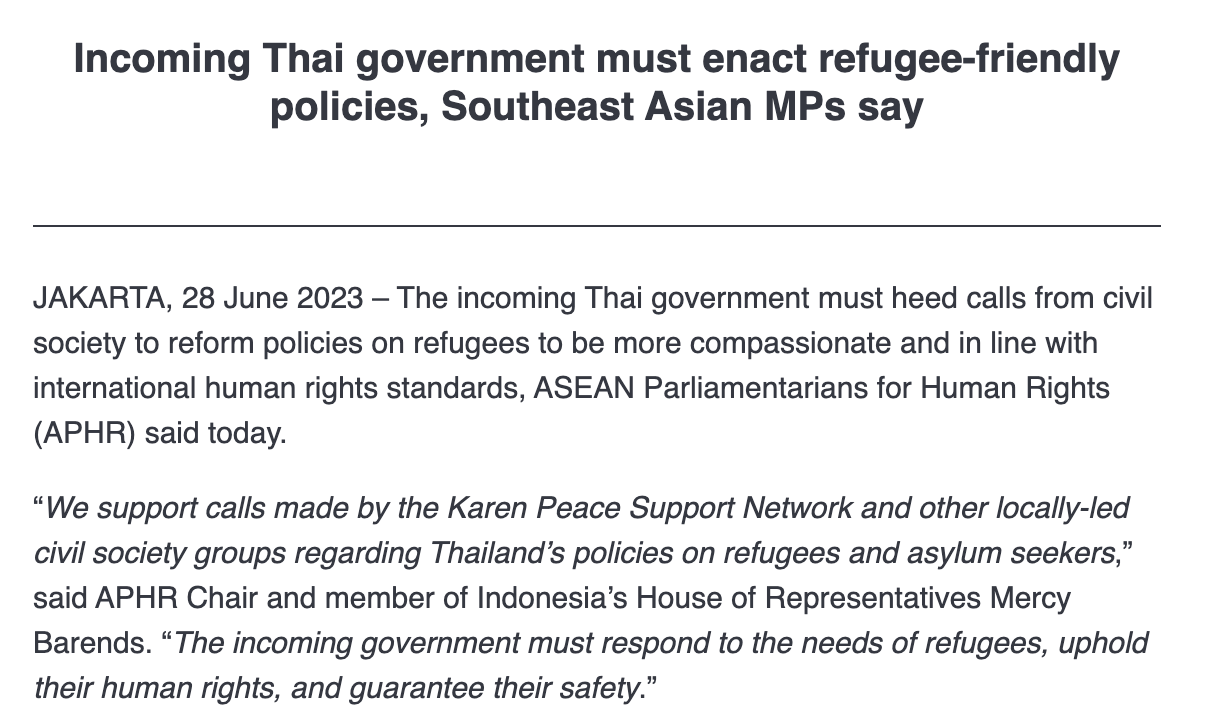I didn’t write anything last week. While Russian mercenary leader Yevgheniy Prigozhin led a contingent of Wagner Group fighters to march on Moscow, taking over the city of Rostov-on-Don for one chaotic weekend, I was traveling along Maryland’s Eastern shore for the first time, frantically texting sources while keeping an eye on the television in roadside diners serving typical American fare. When I got back to Washington, the sky was choked with smog blown over from the wildfires in Canada. Our phones warned us we shouldn’t go outside.
Meanwhile, Israel launched its most extensive military operation in the occupied West Bank in years. Riots erupted in France over the police killing of a 17-year-old boy. Ukrainian writer Victoria Amelina was struck by a Russian missile in Kramatorsk and died. She was one year younger than me, and about to embark on a writing fellowship that would have taken her to Paris for a year. You can read her essays here.
Russian investigative journalist Elena Milashina was severely beaten by masked men in Chechnya when she went to the trial of an exiled opposition activist’s mother. The war in Ukraine reached its 500th day.
I spent the Fourth of July weekend floating in a tube down the Gunpowder River and scrambling over fallen logs, a beer in hand, annoying the fishermen who glared at me and my friends as we scared away their prey.
Ten people died, and 38 more were wounded in mass shootings in Baltimore, Philadelphia, and Fort Worth, Texas, during the long weekend.
My housemate and I played a game we often do in America. I call it was that fireworks or gunshots? Except it’s not really a game. It’s just a question we text one another from our respective parts of the house whenever we hear a loud bang. Usually, it’s the former and not the latter. But not always.
I haven’t wanted to share anything on social media lately. I deleted Facebook and Instagram from my phone. I use Twitter and Telegram for work, but barely. I feel like all of these platforms I once found so useful, that I thought were indispensable for my work, have transformed into something nefarious. Instagram has become another version of the glossy magazines that make teenage girls neurotic, flooded with influencers trying to sell you something and telling you how to live. Twitter becomes less useful by the minute thanks to a certain billionaire’s bad decisions. And I am not even a little tempted to join threads. I guess there’s something to say about late-stage capitalism destroying everything, but I’ll let others say it instead.
When I first moved back to America, I found it so difficult to be away from what I considered the real world. The real world was everywhere else. The United States, by contrast, was like some simulacrum, a parody of a place in the collective imagination, something cut off from all that was true and important to me. It was a place I had a tangled, conflicted relationship with, which was why I knew I had to go back. Moving stateside was like some self-inflicted immersion therapy.
But now I’ve been here 6 years, and the place has started to feel real. I no longer grimace when something happens elsewhere and I cannot witness it. I move pretty seamlessly (or so I like to think) between continents without much whiplash. I use the technology I am starting to despise to speak with people, to gather facts. I float down the river to celebrate American independence while things happen elsewhere. I’ve started to feel in my bones that everywhere in the world is a place, is home to someone, is important. I guess that’s what this newsletter is about.
What I’m writing:
• Israel’s hard-line government launched its largest assault on the occupied West Bank in decades this week, unleashing force that experts say might have violated international law. This story is unlocked and free to read.
• The dramatic events in Russia left both Wagner Group leader Yevgheniy Prigozhin and Russian President Vladimir Putin severely weakened. Experts tell me Prigozhin would not have started marching toward Moscow if he didn’t have (or believe he had) some support among Russia’s larger power structures. This story is unlocked and free to read.
• As Moscow's power structures start to wobble, a look at whether Russia's nuclear weapons stockpiles are safe and what the U.S. can do, if anything, to lower the nuclear risks. This story is unlocked and free to read.
News blurbs:
What I’m reading:
A week is a long time in politics –
Former British Prime Minister Harold Wilson
• Western lobbyists are already flocking to Ukraine, eyeing post-war contracts, Politico Europe reports.
• CIA Director William Burns secretly visited Ukraine last month, where officials revealed an ambitious strategy to end the war, the Washington Post reports.
• A group of former U.S. national security officials held secret talks with Russians close to the Kremlin, including Russian Foreign Affairs Minister Sergey Lavrov, intending to lay the groundwork for negotiations to end the war in Ukraine, NBC News reports.
• Russian President Vladimir Putin called regular Wagner troops “patriots” who would be allowed to join the army, go to Belarus, or return home while accusing the leaders of the armed action of wanting “to see Russia choked in bloody strife,” the BBC reports. The Russian state media has also launched a campaign to discredit Prigozhin.
• As Russian President Vladimir Putin seeks to assert control in Russia, he is moving to punish people who enabled the mercenary boss Yevgeny Prigozhin’s rebellion. But Prigozhin’s deep connections with the ruling elite are complicating those efforts, the New York Times reports.
• Roskomnadzor, the Russian federal agency responsible for controlling and censoring mass media, blocked access to Yevgeny Prigozhin’s company page, UPI reports.
• Prigozhin’s Patriot Media announced it would be shutting up shop, Politico Europe reports, while his catering company Concord reportedly lost its contract with the Russian defense ministry.
• Belarusian President Alexander Lukashenko said he stopped Russian President Vladimir Putin from making a “harsh decision,” the Washington Post reports. His assertion suggests that Putin planned to kill Prigozhin.
• U.S. intelligence officials gathered a detailed picture of paramilitary organization Wagner group chief Yevgeny Prigozhin’s plans leading up to his short-lived armed action, including where and how Wagner was planning to advance, CNN reports. That intelligence was so closely held that it was shared only with select allies, including senior British officials, and not at the broader NATO level.
• General Sergei Surovikin, the former top Russian commander in Ukraine, knew of Yevgeny Prigozhin’s plans for armed action against Russia’s military leadership, the New York Times reports. He has been missing throughout the week, and some reports claim he was arrested.
• Russia assured the paramilitary organization Wagner group’s client states that its services would continue without interruption as Russia tries to take control of its operations, the Wall Street Journal reports. Wagner operates in numerous nations in Africa and the Middle East.
• Ukrainian President Volodymyr Zelenskyy savaged his Bulgarian counterpart Rumen Radev in a televised exchange in Sofia, Politico Europe reports.
• Faced with Russia’s full-scale invasion of neighboring Ukraine, Moldova’s techno community is striking a balance between hedonism and solidarity, Meduza’s newsletter, the Beet, reports.
• Poland and Hungary were rebuked by the European Commission for democratic deficiencies identified in the European Union’s annual rule of law report, the Associated Press reports.
• Germany is ready to send 4,000 troops to be stationed permanently in Lithuania in coordination with NATO defense planning following Russia’s invasion of Ukraine, Reuters reports. Lithuania’s President Gitanas Nauseda said he was aiming for the necessary infrastructure to be in place by 2026.
• A Court of Appeal ruled that the United Kingdom’s plan to send asylum seekers to Rwanda is unlawful, the BBC reports. The government said it would appeal.
• Elections are kicking off in Spain (I have my ballot already, thanks!), and former far-right Vox Party candidate Macarena Olona launched her new, centrist party’s campaign from a brothel in Granada. “It’s a place where one normally finds politicians,” she said, in a clear stab at the ruling PSOE’s corruption and sex scandal in Spain’s south. The Nacional has the story (In Spanish).
• King Willem-Alexander of the Netherlands apologized for his country’s role in colonial slave trading, the Washington Post reports.
• Brazil’s electoral court barred former President Jair Bolsonaro from running for office until 2030, the Wall Street Journal reports.
• Leaders of India’s governing Bharatiya Janata Party (BJP) criticized former U.S. President Obama for his recent comments that India may “start pulling apart” if the rights of minorities were not protected, the BBC reports.
• The star witness in a corruption trial against Israeli Prime Minister Benjamin Netanyahu testified in court, the New York Times reports. He’s a Hollywood producer and ex-secret agent.
• Israeli Prime Minister Benjamin Netanyahu is pushing ahead with controversial judicial reform legislation, but without the provision that would have given the national legislature the power to overturn rulings by the Supreme Court, the Wall Street Journal reports.
• The Tel Aviv district police commander quit due to political intervention by Prime Minister Benjamin Netanyahu’s hard-right cabinet members, whom he said wanted excessive force used against anti-government protesters, Reuters reports.
• The United Nations refugee agency warned that an earlier projection that conflict in Sudan would prompt 1 million people to flee across its borders is likely an underestimate, Reuters reports. Nearly 600,000 people have already escaped to neighboring countries.
Interesting statements:
You can write to me for any reason: c.maza@protonmail.com.










